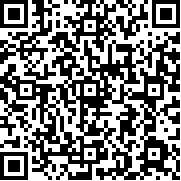
公眾號:mywangxiao
及時發(fā)布考試資訊
分享考試技巧、復(fù)習(xí)經(jīng)驗(yàn)

新浪微博 @wangxiaocn關(guān)注微博
聯(lián)系方式 400-18-8000
參考答案:
Part I Dialogue Completion (15 points)
1. C 2. B 3. A 4. D 5. B 6. A 7. C 8. B 9. D 10. A
11. D 12. A 13. C 14. B 15. A
Part II Reading Comprehension (40 points)
16. C 17. B 18. D 19. A 20. C 21. A 22. C 23. B 24. D 25. B
26. A 27. C 28. C 29. B 30. D 31. C 32. B 33. A 34. B 35. D
Part III Vocabulary and Structure (20 points)
36. C 37. A 38. D 39. B 40. A 41. C 42. A 43. D 44. B 45. A
46. A 47. D 48. B 49. C 50. D 51. D 52. A 53. C 54. B 55. C
56. C 57. A 58. B 59. D 60. A 61.B 62. C 63. A 64. D 65.B 66. D 67. A 68. B 69. D 70. C 71. B 72. A 73. D 74. C 75. A
Part IV Cloze Test (10 points)
76. B 77. D 78. C 79. A 80. C 81. B 82. D 83. A 84. C 85. B
Part V Writing (15 points)
參考作文
More and more people contact each other using cell phones. The overuse of or over-reliance on cell phones may cause problems to people’s emotional health. To begin with, the overuse of mobile phones will invade people’s private time that should have been spent on relaxation. For instance, the use of mobile phones enables your boss to find you whenever and wherever you are, even when you are enjoying a dinner at home. Secondly, the frequent sending and receiving of short messages may keep a person continually alert to any sound similar to that of a cell phone. According to psychologists, being constantly sensitive to some sounds will make people feel under pressure. Do you want to stay away from the harm of overusing mobile phones? Just turn it off after a day’s work. (133 words)
相關(guān)文章:
更多關(guān)注: 成績查詢 考試用書 考試培訓(xùn) 輔導(dǎo)資料 考試報(bào)名
(責(zé)任編輯:lqh)